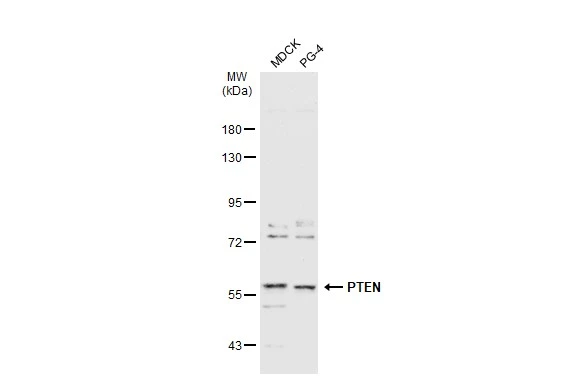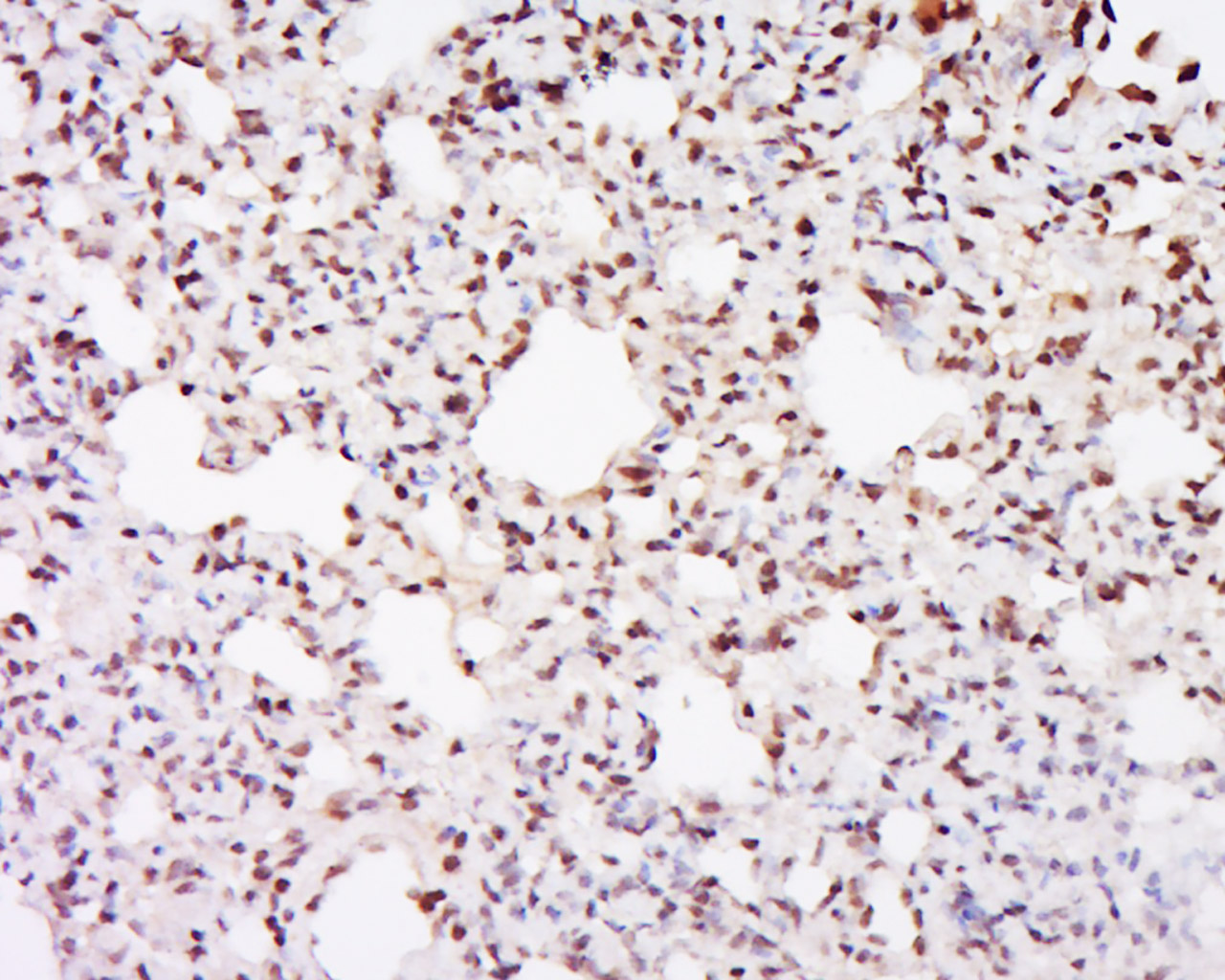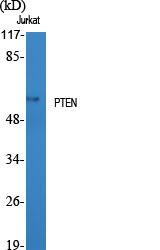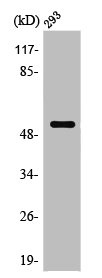
Immunohistochemical staining of formalin-fixed and paraffin-embedded human endometrium adenocarcinoma (stageIB) tissue sections using anti-PTEN Rabbit Monoclonal Antibody (Clone RM511), at 1:100 dilution for 1 hr at room temperature.
anti-PTEN (human), Rabbit Monoclonal (RM511)
REV-31-1403-00
ApplicationsImmunoHistoChemistry
Product group Antibodies
ReactivityHuman
TargetPTEN
Overview
- SupplierRevMAb Biosciences
- Product Nameanti-PTEN (human), Rabbit Monoclonal (RM511)
- Delivery Days Customer10
- ApplicationsImmunoHistoChemistry
- CertificationResearch Use Only
- ClonalityMonoclonal
- Clone IDRM511
- Gene ID5728
- Target namePTEN
- Target descriptionphosphatase and tensin homolog
- Target synonyms10q23del, BZS, CWS1, DEC, GLM2, MHAM, MMAC1, PTEN1, PTENbeta, PTENgama, TEP1, phosphatidylinositol 3,4,5-trisphosphate 3-phosphatase and dual-specificity protein phosphatase PTEN, MMAC1 phosphatase and tensin homolog deleted on chromosome 10, PTEN variant PTEN-K267Rfs*9, PTEN variant PTEN-L247*, PTEN variant PTEN-R234Afs*11, PTENepsilon, inositol polyphosphate 3-phosphatase, mitochondrial PTENalpha, mitochondrial phosphatase and tensin protein alpha, mutated in multiple advanced cancers 1, phosphatase and tensin-like protein, phosphatidylinositol-3,4,5-trisphosphate 3-phosphatase and dual-specificity protein phosphatase PTEN, protein tyrosine phosphatase
- HostRabbit
- IsotypeIgG
- Protein IDP60484
- Protein NamePhosphatidylinositol 3,4,5-trisphosphate 3-phosphatase and dual-specificity protein phosphatase PTEN
- Scientific DescriptionPTEN (phosphatase and tensin homologue deleted on chromosome ten) is a tumor suppressor implicated in a wide variety of human cancers. PTEN encodes a 403 amino acid polypeptide and contains a tensin like domain as well as a catalytic domain similar to that of the dual specificity protein tyrosine phosphatases. PTEN preferentially dephosphorylates phosphoinositide substrates. PTEN negatively regulates intracellular levels of phosphatidylinositol-3, 4, 5-trisphosphate in cells and functions as a tumor suppressor by negatively regulating PI3K/Akt signaling pathway. PTEN possesses a carboxy-terminal, noncatalytic regulatory domain with three phosphorylation sites (Ser380, Thr382, and Thr383) that regulate PTEN stability and may affect its biological activity. PTEN regulates p53 protein levels and activity and is involved in G protein-coupled signaling during chemotaxis. PTEN plays a role as a key modulator in neurogenesis, including correct neuron positioning, dendritic development and synapse formation and it may be also a negative regulator of insulin signaling and glucose metabolism in adipose tissue. The nuclear monoubiquitinated form possesses greater apoptotic potential, whereas the cytoplasmic nonubiquitinated form of PTEN induces less tumor suppressive ability. - Recombinant Antibody. This antibody reacts to human PTEN. Isotype: Rabbit IgG. Immunogen: A peptide corresponding to residues at the C-terminus of human PTEN. Applications: IHC. PTEN (phosphatase and tensin homologue deleted on chromosome ten) is a tumor suppressor implicated in a wide variety of human cancers. PTEN encodes a 403 amino acid polypeptide and contains a tensin like domain as well as a catalytic domain similar to that of the dual specificity protein tyrosine phosphatases. PTEN preferentially dephosphorylates phosphoinositide substrates. PTEN negatively regulates intracellular levels of phosphatidylinositol-3, 4, 5-trisphosphate in cells and functions as a tumor suppressor by negatively regulating PI3K/Akt signaling pathway. PTEN possesses a carboxy-terminal, noncatalytic regulatory domain with three phosphorylation sites (Ser380, Thr382, and Thr383) that regulate PTEN stability and may affect its biological activity. PTEN regulates p53 protein levels and activity and is involved in G protein-coupled signaling during chemotaxis. PTEN plays a role as a key modulator in neurogenesis, including correct neuron positioning, dendritic development and synapse formation and it may be also a negative regulator of insulin signaling and glucose metabolism in adipose tissue. The nuclear monoubiquitinated form possesses greater apoptotic potential, whereas the cytoplasmic nonubiquitinated form of PTEN induces less tumor suppressive ability.
- ReactivityHuman
- Storage Instruction-20°C
- UNSPSC12352203







